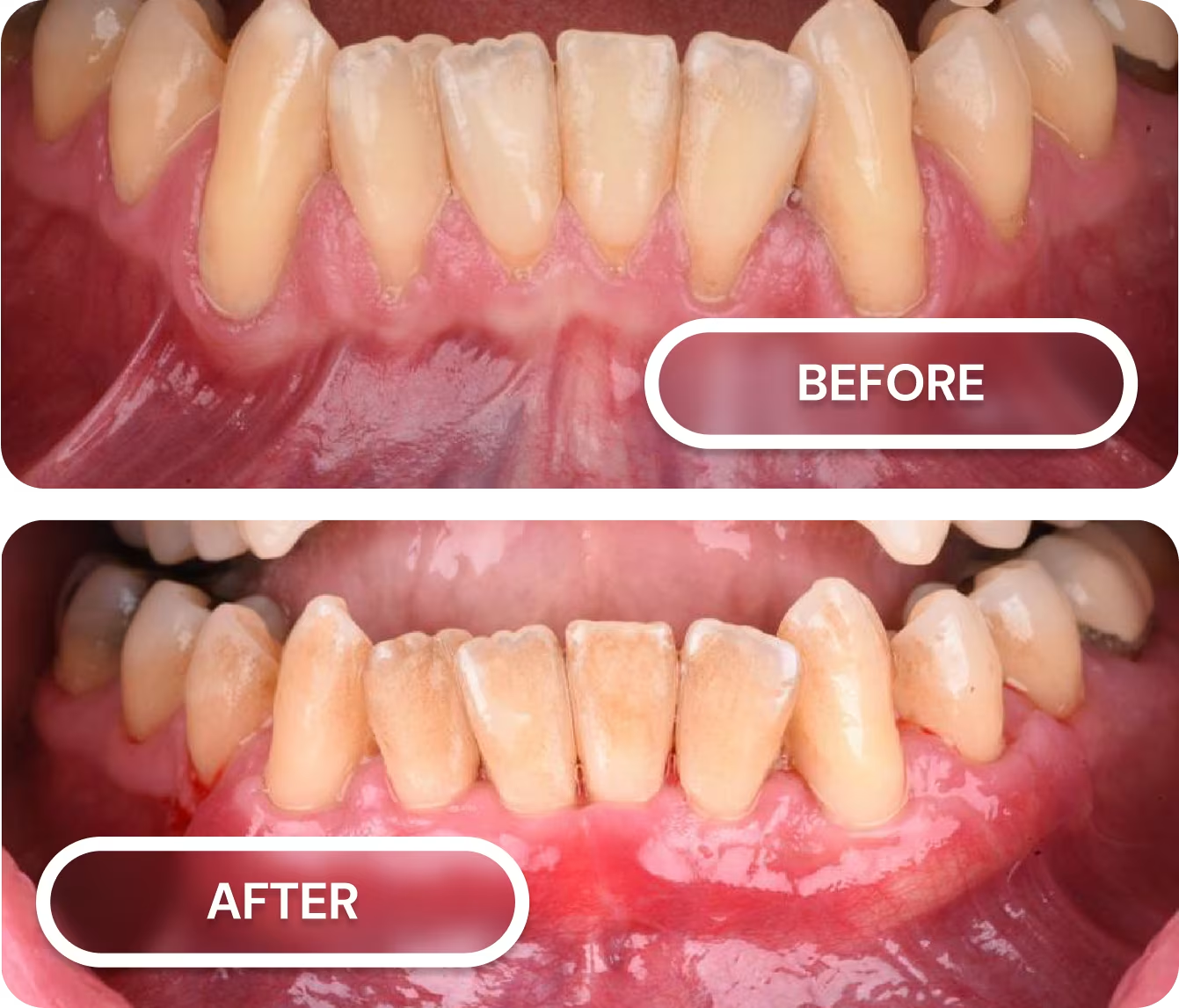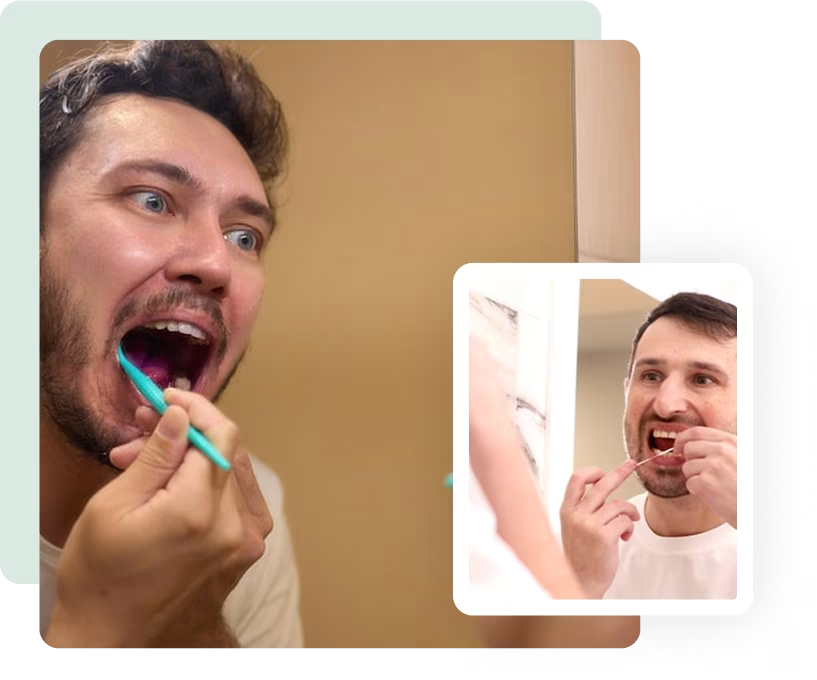Your Gums Shouldn’t Be Shrinking
If your teeth are starting to look longer… if you feel sudden sensitivity to cold drinks or if you’ve noticed little notches near the gumline—it might not be your teeth. It could be your gums pulling back.
Gum recession is common, especially in adults over 40, but it’s not just a cosmetic issue. Left untreated, it can lead to further root exposure, increased risk of tooth decay, bone loss, and eventually, tooth loss.
Book a Gum Recession Consultation
Results You Can See
Natural-looking gumline
Reduced sensitivity
Healthier, more youthful smile
Greater protection against future damage
We don’t just repair — we restore confidence.


What Causes Gum Recession?
Gum recession doesn’t happen overnight, and it’s often the result of more than one factor:
- Bleeding when brushing or flossing
- Loose or shifting teeth
- Bad breath that doesn’t go away
- Pain when chewing
- Red, swollen, or tender gums
- Changes in your bite
- Gum recession (teeth look longer)
We’ll identify the root cause (no pun intended) and build a treatment plan around your specific situation.
.png)
Why Gum Recession Matters
Receding gums expose the roots of your teeth. That means:
- Higher risk of cavities on the root surface
- Less foundational support for the teeth
- Aged appearance of the smile
- Higher risk of tooth mobility and loss
- Changes in your bite
The good news? We can fix it. And today’s techniques are gentler and more predictable than ever.
.avif)
Why Gum Recession Matters
Receding gums expose the roots of your teeth. That means:
- Higher risk of cavities on the root surface
- Less foundational support for the teeth
- Aged appearance of the smile
- Higher risk of tooth mobility and loss
- Changes in your bite
The good news? We can fix it. And today’s techniques are gentler and more predictable than ever.
.png)
Treatment Options We Offer

Connective Tissue Grafting (Traditional)
This time-tested method uses a small piece of tissue from your palate to rebuild the gumline over exposed roots. It offers strong, long-lasting results.
.png)
Donor Allografts (No Palate Tissue Needed)
For patients who prefer not to use their own tissue, we can use sterile donor grafts that are safe, effective, and avoid the need for a second surgical site on the roof of your mouth.
.png)
Minimally Invasive Tunnelling Technique
Advanced techniques we use to gently reposition the existing gum tissue using tiny entry points. Minimal discomfort. No scarring.
Each method is chosen based on your case, gum type, and overall goals.
Fix the Problem. Protect Your Smile.
Gum recession isn’t something to ignore. With the right treatment, you can reverse the damage and feel good about your smile again.
Book a Gum Recession Consultation